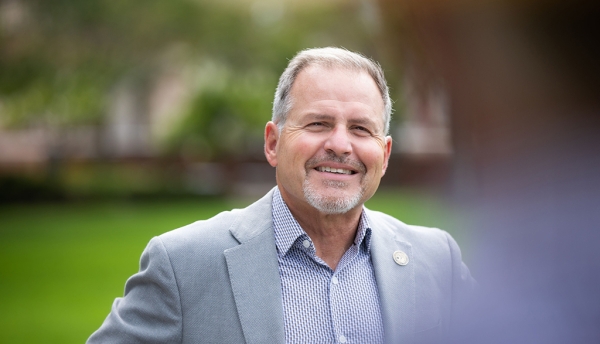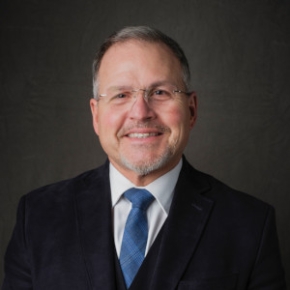Father McDonald, Fr. Pipp and members of the Jesuit Community; Chairman Donnelly and the members of the Board of Directors; distinguished guests; Provost Herbert; faculty, staff, students, alumni and friends of John Carroll University; members of my family;
Allow me to begin with the short list of things that bring a feeling of awe in this moment:
- The support and generosity shown to me over the years by teachers, mentors, colleagues, and friends.
- The values and beliefs instilled in me by parents and extended family.
- The unconditional love gifted to me by my loving wife Ann and our daughter Emma.
- The trust placed in me as Director of the Work by the Board of Directors and the Provincial of the Midwest Jesuits, Fr. Karl Kiser.
- The responsibility that comes with this office and the challenges ahead.
I would call this my personal inheritance. In this way, I am a most fortunate man today.
I feel equally awed by the nature of the work at hand, the very idea of a University.
Consider, if you will, the early Jesuits of the sixteenth century who during the Age of Discovery sought new, more effective ways to educate young people for an ever-expanding world. Their desire to see God in all things and to help prepare people for unknown futures led them to establish “a new, international style” of humanistic education that brought faith into dialogue with culture. In less than two centuries they established a network of some 800 educational institutions throughout the world, expressing their belief that every future should have a future and that future should begin with knowledge for the good of the world.
I would call this our collective inheritance. As a learning community, we are blessed with great abundance.
The past 18 months have caused us to question the purpose and value of nearly everything we previously took for granted. Today, I encourage each of you to affirm your own belief in this precious enterprise; in the slow, patient, inspired work of educating young women and men so that they may spark a new and forming world, and once established within that world serve a greater good.
We stand at a crossroad as a University. Behind us lay our share of mistakes and regrets, along with a long history of responding to the urgency of a particular moment with imagination and courage. Ahead lay the great challenges and opportunities of this century: climate, health, technology, energy, security, hunger, justice, equity.
America has always wrestled with the tensions between what we believe is bestowed upon us as individuals — our personal agency and liberty — and an inherent sense of what is fair, just, right and merciful for the whole of our communities. A pandemic has laid those tensions bare like never before.
I believe that we can — we must — resolve such tensions if we are to prepare this generation of young people to meet this moment. Only then, only by our example, can we then call upon these young people to unleash a storm of innovation and change to address the world’s greatest needs.
This resolution may ask more of us — as teachers, advisors, donors, coaches, alumni, mentors and parents — than maybe we had planned to give. Together, we will face and make vexing decisions and confront unwelcome change.
Can we approach our part with the same patient deliberation and innovation modeled by those early Jesuits? Can we see far enough beyond our immediate conflicts and objections to imagine a better future? Based upon the unwavering dedication to our students that I have seen from so many faculty, staff, and alumni over the past 18 months, I am convinced that we can and that we will.
For now, I invite you to share this moment fully — to experience any measure of the gratitude and awe pulsing through my veins. From where I stand today, looking into the faces of John Carroll’s future, everything is possible.

